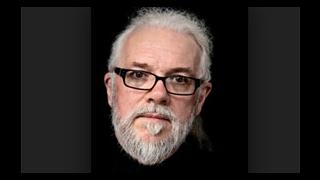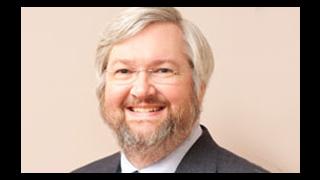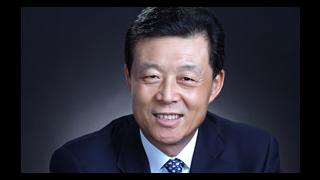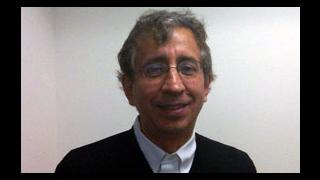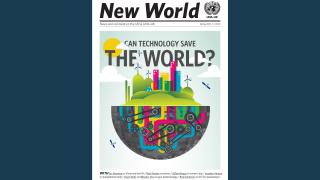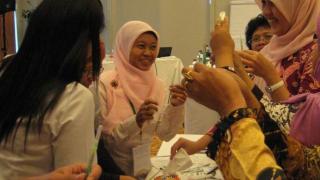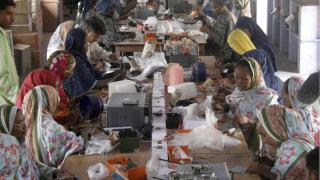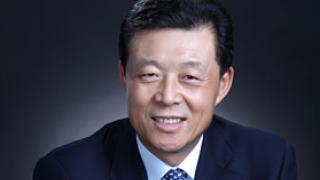
UNA-UK's flagship magazine secured an exclusive interview with H.E. Liu Xiaoming, Ambassador of the People's Republic of China to the UK for its Spring 2013 edition.
In this wide-ranging piece, the Ambassador discusses issues including UN reform, development, and preventing mass atrocities.
An edited version of the interview was published in the print version of New World Spring 2013. We are pleased to include the full version below.
What are China’s top priorities for the 67th Session of the UN General Assembly?
Ambassador Liu: China has three top priorities for the 67th Session of the General Assembly.
First, upholding principles. In dealing with global hot spot issues, the Assembly should continue to uphold the purposes and principles of the UN Charter; that means respect for sovereignty, the independence and territorial integrity of all countries.
Overall there must be an insistence on peaceful settlement of disputes. If these points are adhered to, it will strengthen the leadership and central role of the UN in international affairs. In addition, on issues concerning global peace and security, the General Assembly should increase coordination and cooperation with the Security Council; again this should be based on the mandate set forth in the UN Charter.
Second, in the 67th Session there should be a focus on development issues. Determined and detailed actions are needed to advance the follow-up process to the UN Conference on Sustainable Development. This should be carried out while observing the principle of common but differentiated responsibilities. China hopes that the General Assembly will launch the process to develop a set of Sustainable Development Goals. This means establishing an intergovernmental high-level political forum on sustainable development and strengthening the central role of the UN in promoting sustainable development. We also hope that during 67th Session, the General Assembly will take into full consideration the concerns of developing nations and inject fresh dynamism into the cause of sustainable development.
This Session of the General Assembly should continue to promote the international community’s attainment of Millennium Development Goals (MDGs). This should include the provision of institutional guarantees for such efforts and at the same time consider formulating a development agenda beyond 2015.
Third, in the 67th Session there should be a maintenance of solidarity. The UN has 193 member states. They each have different interests and concerns. The General Assembly should conduct its work in a balanced and fair manner, advocate mutual respect and full consultation among member states, resolve issues through consensus and work for appropriate solutions of related issues. In its working practice, the Assembly should avoid actions such as forcing votes that may cause division or confrontation and undermine solidarity among member states.
In your view, is there one UN body or initiative that deserves more funding?
Ambassador Liu: The UN is the world’s most representative and authoritative intergovernmental international organisation. As such, it has critical responsibilities and plays an irreplaceable role in resolving various global issues.
Since the end of the ‘Cold War’, especially in this new century, peace and development have become the hallmark of our times. Multipolarity and economic globalisation have gained momentum. Global challenges and threats are on the rise. The entire international community expects the UN to play a bigger role in safeguarding world peace, promoting common development and strengthening international cooperation. While playing its role, the UN should spend efficiently. As a guiding principle UN bodies should work to achieve more with less.
What has been your country’s greatest achievement at the UN?
Ambassador Liu: Since its founding, the UN has played a prominent role and made remarkable achievements in preventing and reducing conflict and war, promoting economic and social development, and formulating international laws and rules. China is one of the founding members of the UN and also a permanent member of its Security Council. Given this position and responsibility, China firmly supports the UN’s central role in meeting global challenges and advancing world peace and development. China attaches great importance to upholding international justice and the authority of the UN. China will, as always, step up cooperation with the UN and remain committed to working with all other countries for peace, development, win-win cooperation, equality and justice around the world.
“Reform the Security Council is the single most important reform in terms of improving the UN’s performance” – do you agree or disagree, and why?
Ambassador Liu: The UN, including its Security Council, needs to keep pace with the times and carry out some necessary and reasonable reforms. This will help enhance its authority, raise its efficiency and better prepare it for new situations and fresh challenges. Security Council reform is an important part of the UN reform. Reform of other agencies is also important for the UN to be able to play its full and proper role in world affairs.
China supports necessary and reasonable reforms of the UN which are aimed at enhancing the authority and efficiency of the UN. Such reforms will enable the UN to better fulfill its mandate of safeguarding world peace and security as provided in the UN Charter.
China believes that in reforming the Security Council, priority should be given to increasing the representation of developing countries in Council, in particular African states. This serves the fundamental interests of small and medium countries that make a majority of the UN membership. Security Council reform is highly complex. We should continue with democratic and patient consultations, take into consideration the interest and concerns of all parties, seek a package solution and reach the broadest possible consensus.
China stands ready to work with all other countries to advance Security Council reform in a direction that helps maintain the overall interests of the UN and solidarity among UN member states.
Could the UN have done more to prevent the financial crisis should it play a bigger role in global economic governance?
Ambassador Liu: The international financial crisis has had an immense impact on the world. All countries need to reflect on it, and tackle it at a global level. At present, some progress has been made in reforming the international financial system. Yet some underlying problems remain unresolved.
China supports the United Nations in playing a bigger role in global economic affairs. This should include: strengthening dialogue and coordination with the Bretton Woods system and other multilateral financial institutions, as well as the G20; deepening reform of the international financial system to increase the say and representation of developing countries, and to establish a fair, equitable, inclusive and orderly international monetary system; toughening regulation on international financial institutions and shadow banking systems so that the financial sector will better serve the growth of the real economy; and strengthening the role of international financial institutions in development and poverty reduction.
How can the UN become more effective in preventing mass atrocities?
Ambassador Liu: China is deeply concerned about situations where life and property of civilians are threatened and lost in armed conflicts. In these circumstances China urges all parties to earnestly observe international law and related resolutions of the UN Security Council. The aim is to always fully protect civilians in armed conflicts.
All atrocities against civilians should be treated with the greatest possible levels of concern and punished. According to the UN Charter and international humanitarian law, the government directly concerned bears the primary responsibility to protect civilians. In cases where the government directly involved fails to meet their responsibilities, the UN may come to help; but this can only happen at the request or with the consent of the relevant government. In providing such help, the UN should uphold the principle of equity, impartiality and neutrality, and fully respect the sovereignty and territorial integrity of the country concerned. The UN should also refrain from involvement in local political strife, or hindering a peace process, which will cause greater loss of life and property.
What are your views on implementation of the Millennium Development Goals (MDGs)? How do you foresee the development agenda in 2015?
Ambassador Liu: The MDGs are an important guideline for international development cooperation. Over the years, the international community has made conscientious efforts to implement the Goals and has achieved some progress. Yet the implementation of MDGs around the world has been unbalanced. Developing countries face enormous difficulties in attaining the Goals as scheduled.
In the coming three years, international development cooperation should continue to focus on delivering the commitments of leaders of all countries. This means comprehensively implementing the MDGs, ensuring development resources, pooling together resources to help development and poverty reduction in Africa and provide greater support for least developed countries.
Discussions on development agenda beyond 2015 should not divert or weaken international efforts to meet MDGs as scheduled. The formulation of the post-2015 agenda relates to long-term strategic rules at global level. It will require a thorough stocktake of the current state of international development cooperation, especially the progress in implementing MDGs. It needs to proceed in a careful way, drawing on the experiences of, and lessons learned from, all parties. The UN should play a leading role in this process and it should move within the framework of the Organisation.
The international development agenda beyond 2015 should reflect the following principles: it should continue to concentrate on poverty eradication; uphold the principle of “common but differentiated responsibilities”; take into account the differing realities and development stages of different countries; respect the development paths of all countries; strengthen global development partnerships; improve implementation mechanisms; make greater efforts in development financing; promote trade and investment liberalisation and facilitation; push forward North-South co-operation; scale up Official Development Assistance (ODA) and technical support for developing countries; and strengthen South-South cooperation.
In just a few years’ time, the BRICS countries are predicted to have a larger share of global GDP than the US or EU. By some calculations, they already have. Should the bloc prepare to become the biggest contributor to Official Development Assistance and the UN system?
Ambassador Liu: Inadequate financing has been one of the main challenges for international development. This challenge has been put in sharp relief as the international financial crisis dealt a heavy blow to low-income countries. The international community, in particular developed countries, should honour their commitments to developing countries on financial support, technology transfer and capacity building, rather than shirk their international responsibilities.
Membership contributions and other financial contributions to the UN system should be strictly based on “capacity to pay”. This is a basic principle, specified in the Rules of Procedure of the General Assembly when the UN was founded. To measure a country’s capacity to pay, we need to look at both gross national income and per capita income. The former is the foundation. The latter is the deciding factor.
BRICS countries have showed a sound momentum of growth in recent years. Their total economic sizes are growing fast. Yet all of them remain developing countries. Their development level, particularly in per capita term, is way behind that of developed countries.
The current size of the Chinese economy is only 61% of the United States. Our per capita GDP is even less at only 12% of the US level. Some British scholars and research institutions have pointed out living standards in the US are respectively four, six and fifteen times of Brazil, China and India. Even by 2022, the economic aggregate of BRICS countries is estimated to be only 75% of the combined economies of the US, Japan, Germany and UK. The gap in per capita term will be even more noticeable.
Developing countries should bear international responsibilities in proportion to their development stages and real capacity. BRICS countries’ assistance to developing countries is mutual help within the framework of South-South cooperation. It can only supplement North-South cooperation, not replace it.
China is a responsible big developing country. We have kept increasing assistance of various kinds to Africa and other developing countries. Not long ago, the UN approved the 2013-2015 Assessment Scales Used to Determine Member State Contributions to Regular Budget. China’s share of contributions has risen from 3.2% to 5.15%. Shares of other BRICS countries all increased by a large margin.
What is the future of the BRICS countries as a grouping within the UN?
Ambassador Liu: In recent decades, unprecedented changes have taken place in the international landscape. The overall strength of developing countries and their participation in international affairs have greatly increased. But their representation and say in international institutions have not been advanced to reflect their increased role in global affairs.
BRICS countries are important members of developing world. Stronger solidarity and cooperation among BRICS countries is of great significance to promoting world peace and development, advancing North-South dialogue and maintaining legitimate rights and interests of developing countries. The nature, historical background and mission of BRICS determine that they should and can increase coordination in international affairs and work together to build a harmonious world of lasting peace and common prosperity.
And finally, on a lighter note, would the UN be better off if its headquarters were in China?
Ambassador Liu: This is a good question and certainly not a light one!
At present, only two UN agencies are headquartered in developing countries. Looking into the future, if as developing countries grow to have greater influence, more UN agencies may have their head offices in developing countries, it will be welcomed by developing countries and, in turn, prompt developing countries to take a more active part in international affairs.

